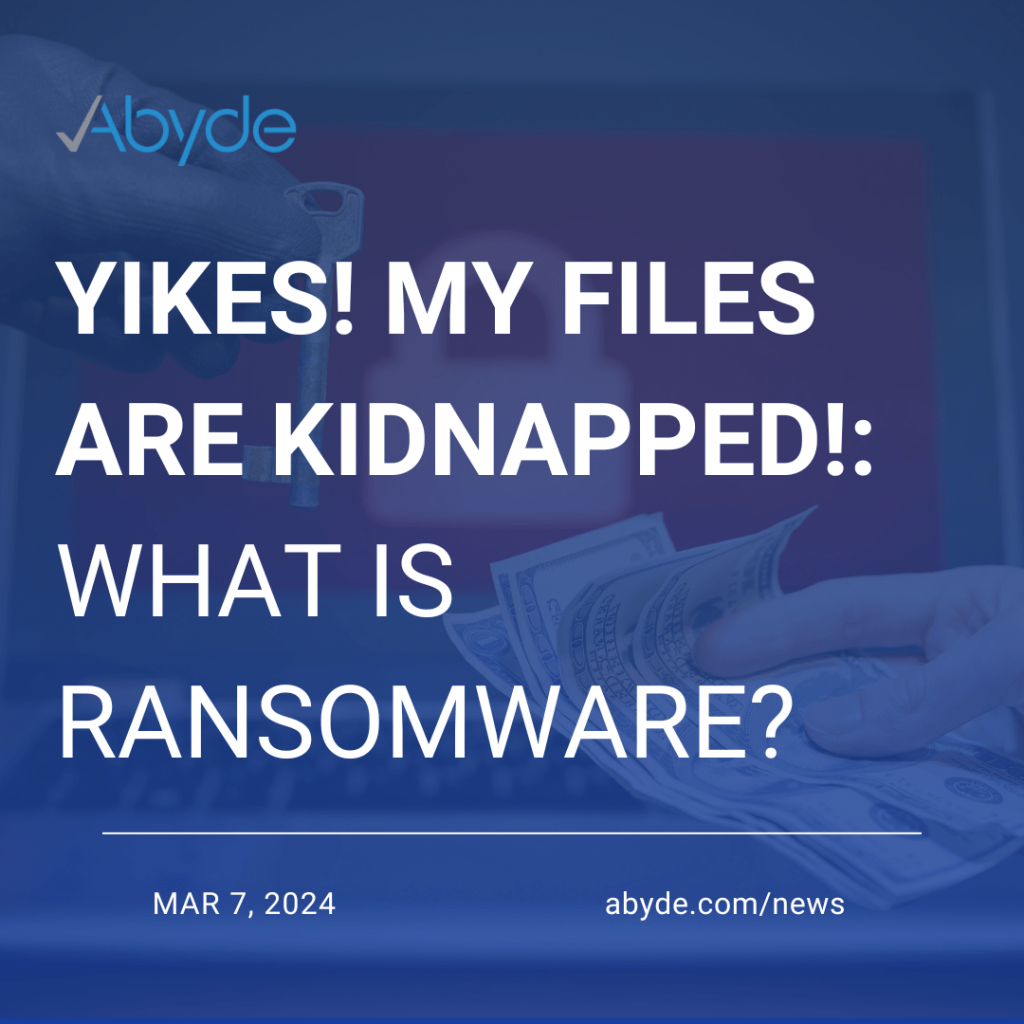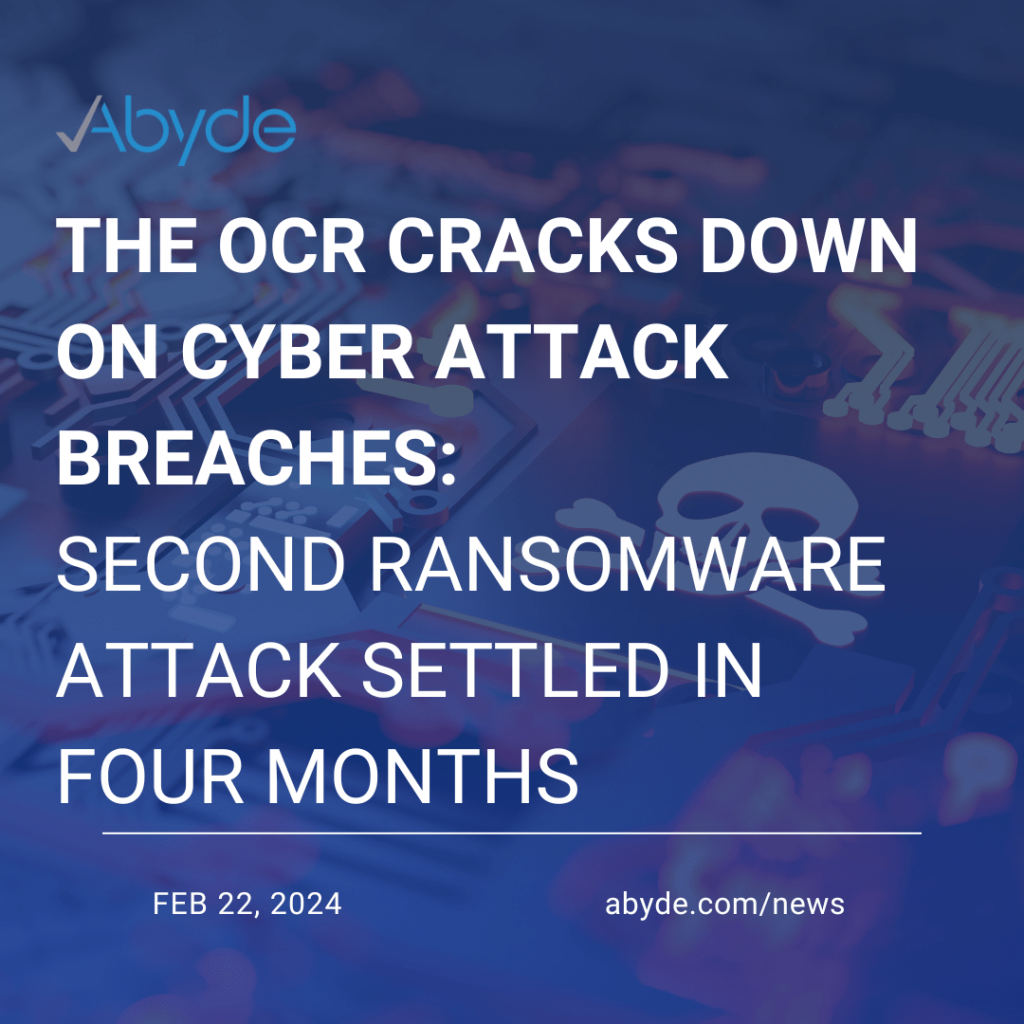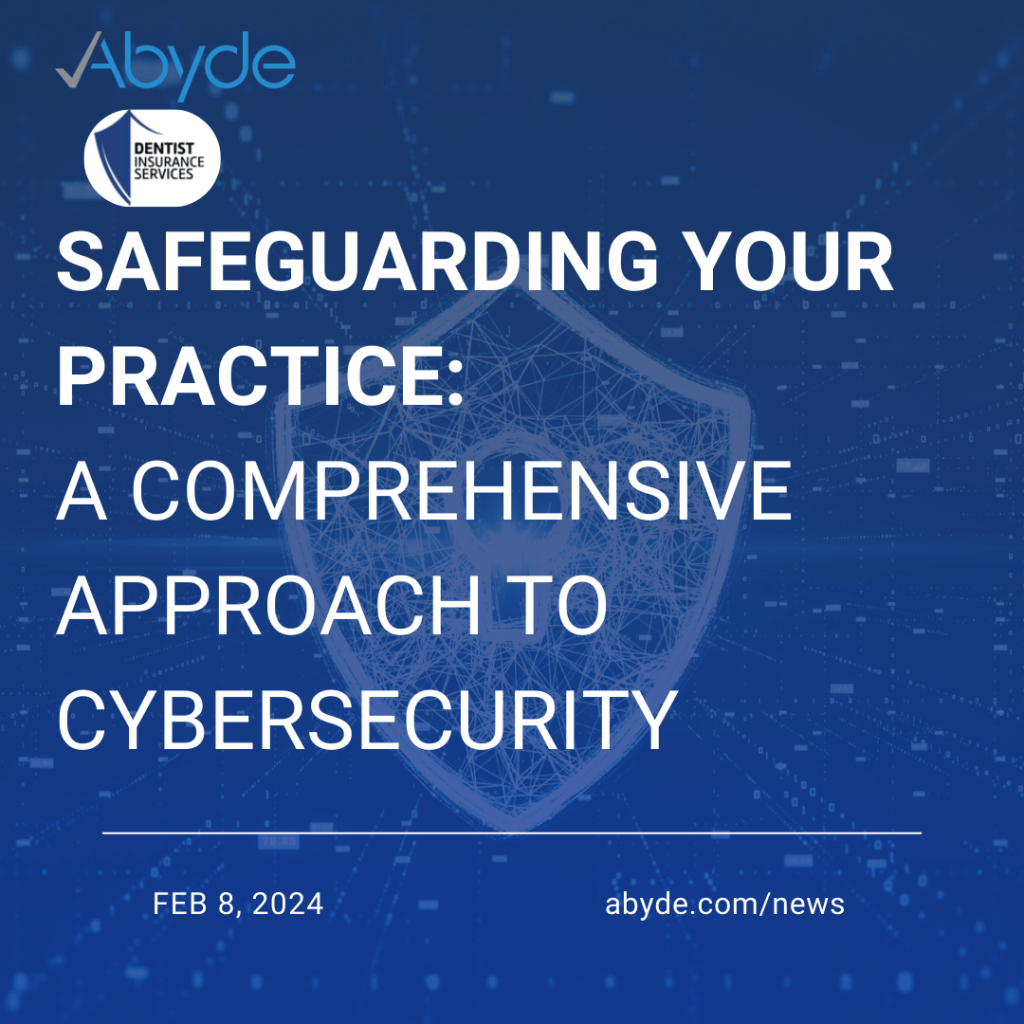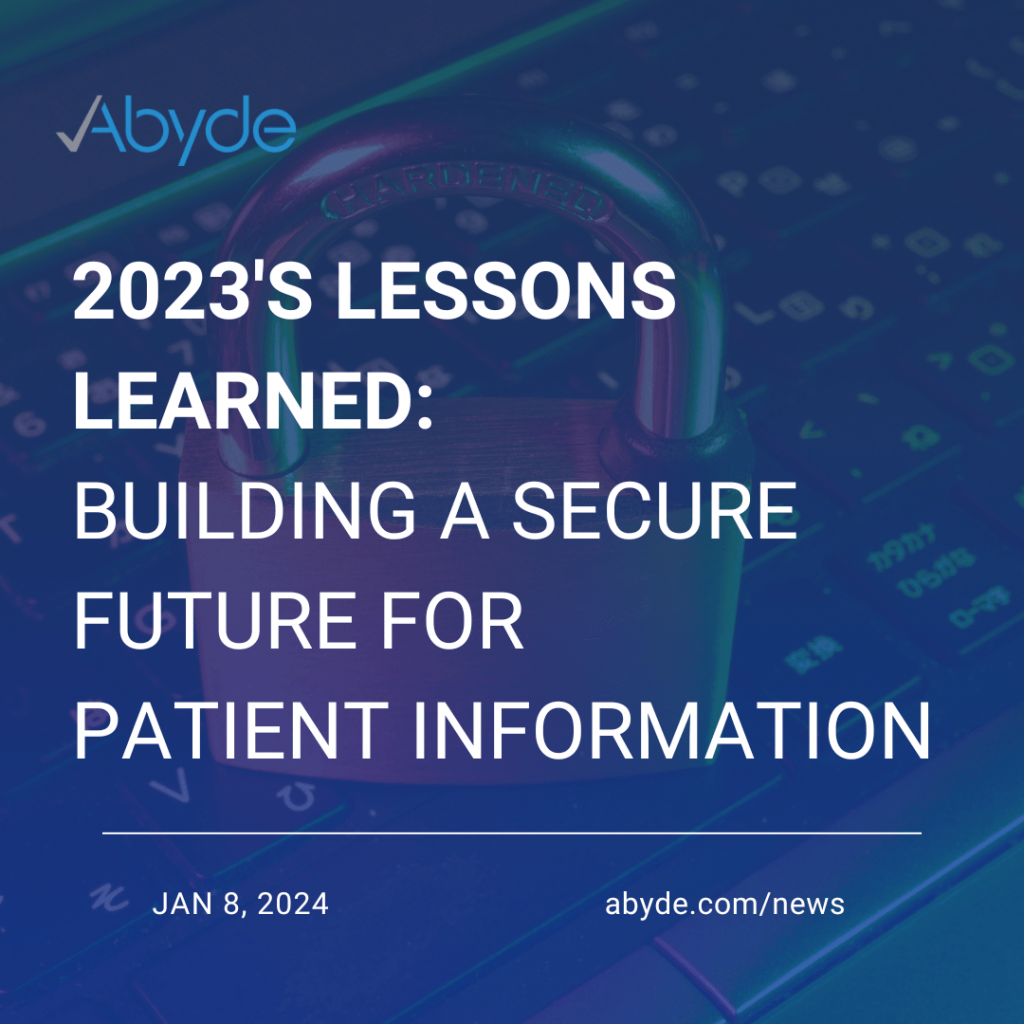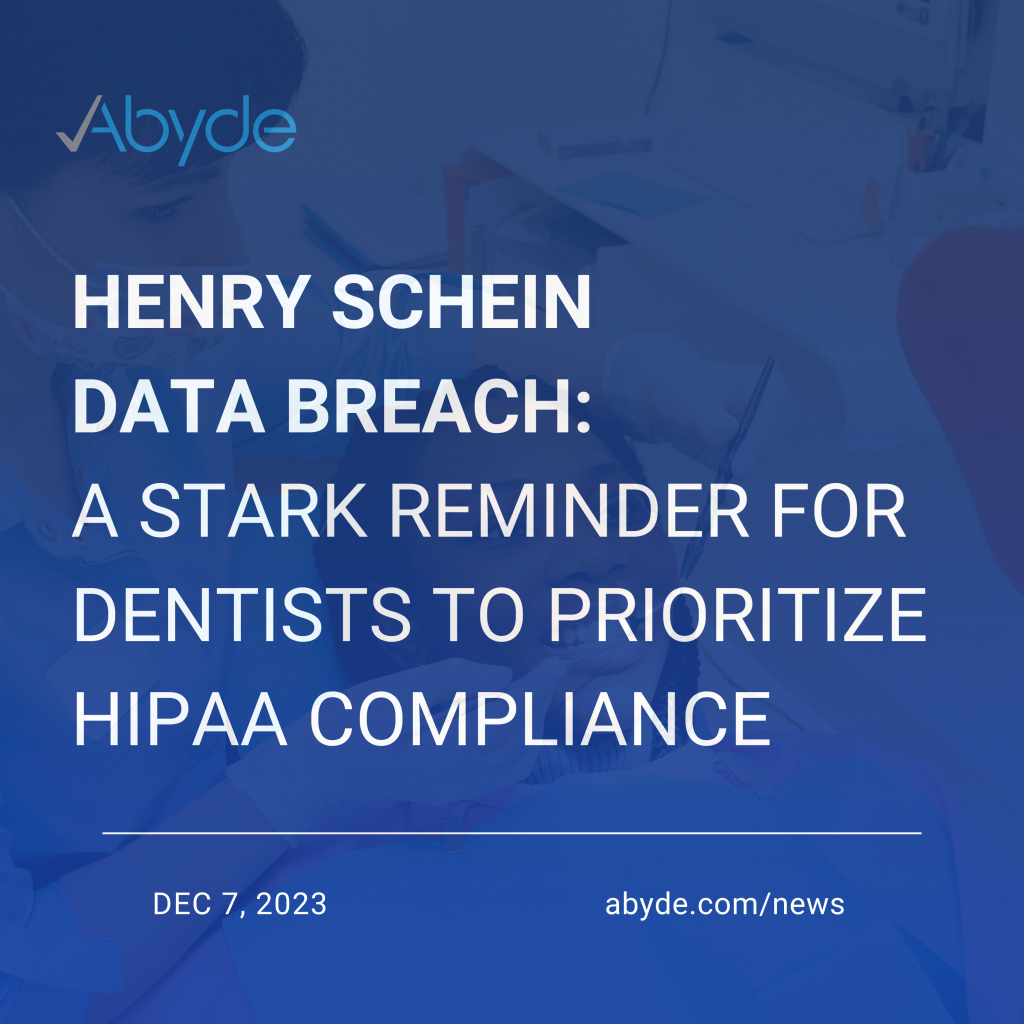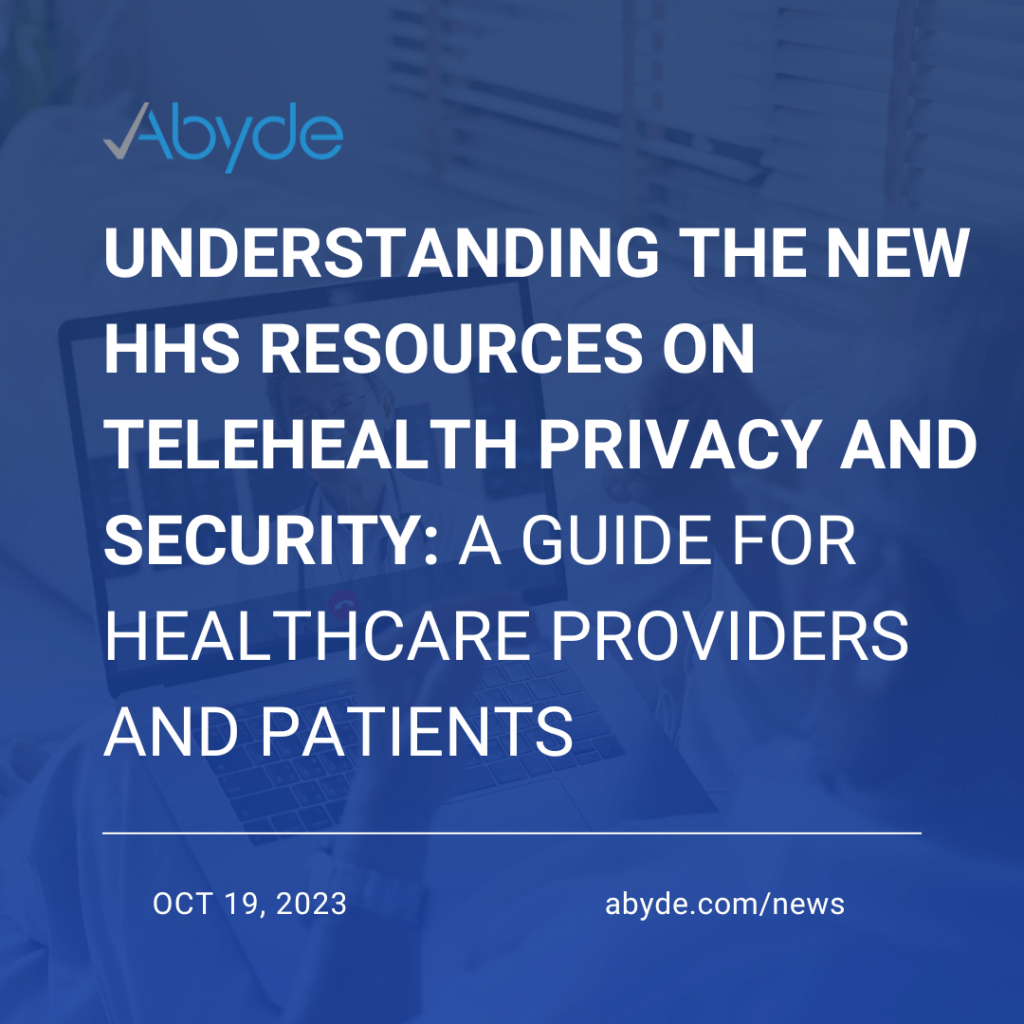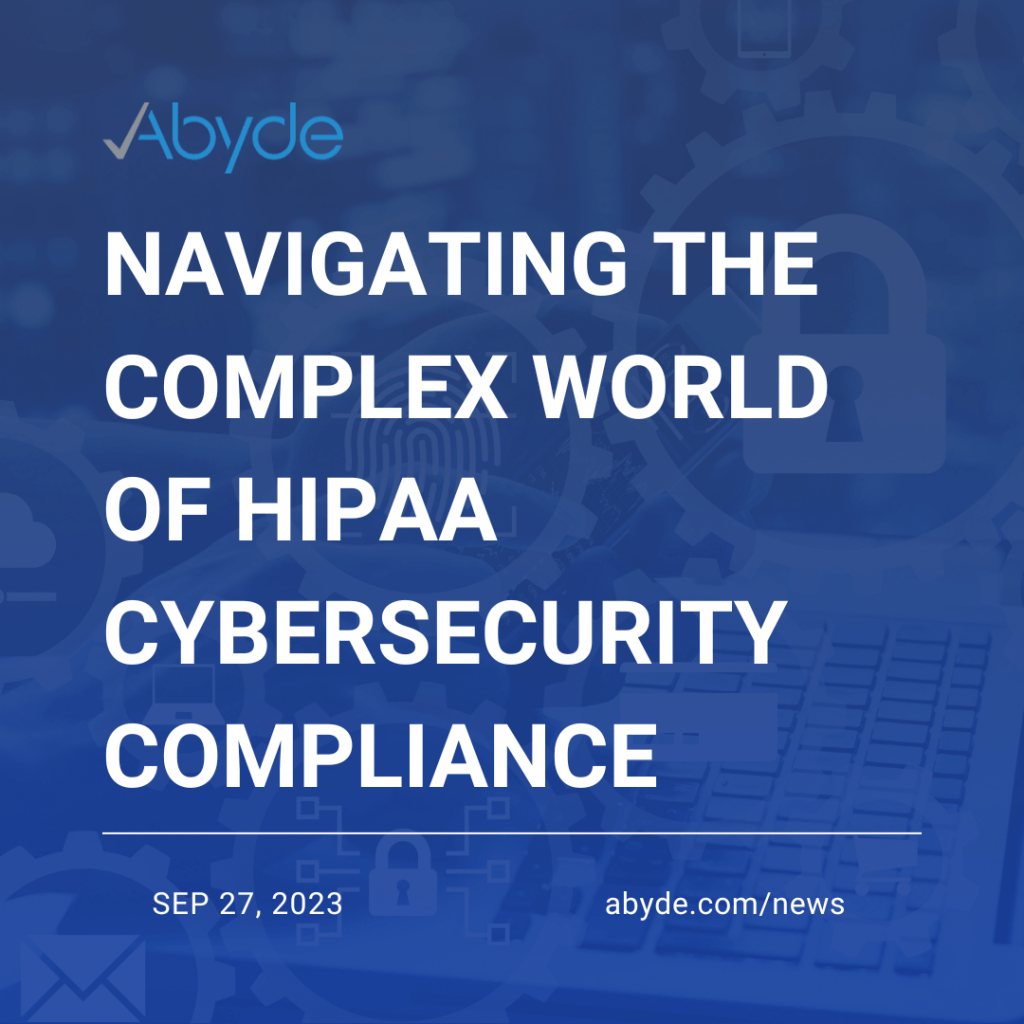March 7, 2024 Ransomware. Even the name sounds ominous! With the Change Healthcare ransomware attack, you might have heard a lot about ransomware in the news lately. While the effects of the attack are wreaking havoc on the healthcare system, you might be wondering what this notorious ransomware is all about. Well, you’ve come to the right place! We’re here to educate you on ransomware and how your practice or organization can be prepared for this cybercrime. What is it, exactly? Ransomware is a form of malware, or malicious software, that encrypts the files of a victim and requires a ransom to access files again. This is a very common way hackers infiltrate healthcare systems and over 4,000 ransomware attacks occur a day! If you’re confused about how ransomware works, here’s a simple example: Dan the Doctor was having an alright day, and then he got an email that went to his practice that he thought would turn it into the best day of his life! The email said he won 20 million dollars! All he had to do was click the link in the email to receive it. He clicked it as soon as possible, already dreaming of spending the rest of his life on the beaches of Hawaii. Spoiler alert: his day was going to get a lot worse. As he clicked the link, ransomware began its sinister magic: encrypting patients’ protected health information (PHI). He couldn’t believe what he did, putting his patients and his practice in jeopardy. Then, to get access to these files again, he had to pay thousands of dollars, or these files would be put online, putting his innocent patients even more at risk. His dreams of Hawaii turned into a very hurt wallet and his patients at risk. While you might think that could never happen to you: email scams, or phishing, are the most common way ransomware attacks are sent. Our simple example is just a story, but it happens often in the healthcare field. For example, the most recent major cybercrime is the ongoing Change Healthcare ransomware attack, in which they paid 22 million dollars in ransom! The OCR is also beginning to fine practices and organizations that do not take the proper precautions against ransomware attacks. The first ransomware attack fine was announced in October, costing the Business Associate (BA) $100,000 in HIPAA fines. What do I do? Now, while ransomware attacks have become extremely prevalent, with a 278% increase in ransomware breaches reported to the OCR, there are precautions you can take. Working with an IT company is key for your practice or business, with prevention being the first line of defense. This includes things like encrypting your files, keeping all software up-to-date, having firewalls, antivirus and more. Additionally, working with a compliance program like Abyde also lowers your risk. By identifying your vulnerabilities and enacting the right protocols, ransomware stands no match! For instance, password updating, proper data handling, access controls, and training, are all different barriers that help your practice or business. Also, if your practice is infected by ransomware, do not pay the ransom, get the infected device offline and off the network, report the breach to the OCR, and get IT experts to investigate the attack. To learn more about how your practice can stay compliant and secure against ransomware attacks, email us at info@abyde.com and schedule consultations for Covered Entities here, and Business Associates here.
Don’t Get Caught Off Guard: HIPAA Audits are Back!
February 23, 2024 They’re Baaaaaack! And in this case, not the poltergeists in the 80s classic, but the Office For Civil Rights (OCR). The OCR shared some significant news, announcing their plans to reintroduce their random HIPAA audits program. The last time this program was in place was in 2016 – 2017, with over 200 Covered Entities and Business Associates audited to ensure HIPAA compliance. Before this program is officially implemented again, the OCR is surveying past audit participants, and hearing their feedback before random audits begin. However, Director of the OCR, Melanie Fontes Rainer, confirmed the audits would resume this year, “OCR intends to initiate audits of HIPAA-regulated entities later this year. These audits can assist regulated entities in improving their HIPAA compliance and their protection of health information.” The audits revealed eye-opening shortcomings of CEs and BAs, with Paul Hales of Hales Group describing that “86% of covered entities and 83% of business associates failed the risk analysis audit, and 94% of CEs and 88% of BAs failed the risk management audit”. Thankfully, this news doesn’t have to be like a horror movie if you’re proactive and take compliance seriously. What does this mean for you? While random HIPAA audits might seem very nerve-wracking for your practice or organization, with the proper tools, you can be easily prepared. These audits will help all in healthcare, highlighting the importance of being compliant and keeping patients’ data safe. That’s why Abyde is here to help. Our software simplifies compliance, allowing your practice to focus on what matters most, taking care of patients, or in the case of Business Associates, running your business. To learn more about how you can be prepared for the random OCR HIPAA audits, email us at info@abyde.com or schedule a compliance consultation below. MEDICAL PRACTICES: SCHEDULE CONSULTATION BUSINESS ASSOCIATES: SCHEDULE CONSULTATION
The OCR Cracks Down on Cyber Attack Breaches: Second Ransomware Attack Settled in Four Months
February 22, 2024 Well, the Office of Civil Rights (OCR) did it again. In the past four months, two ransomware cyber attack cases have been settled, resulting in hefty fines, yikes! While the first ruling affected a Business Associate with a major fine, this breach impacted a Covered Entity. In February 2019, Green Ridge Behavioral Health in Maryland filed a breach report that all of their files on patients were encrypted with ransomware, resulting in over 14,000 patients’ data being compromised. That’s a lot of people! As the name suggests, ransomware is a cybercrime where data is held for ransom. Users are unable to access data/files till the ransom is paid. It is a malicious crime that is extremely prevalent in healthcare, with a 264% increase over the past five years in large breaches reported to the OCR. In their investigation, the OCR found potential violations of the HIPAA Privacy and Security Rules from before and right up until the breach. In their variety of violations, some other major misses included: As a result, Green Ridge Behavioral Health was fined $40,000 and will now be monitored by the OCR for the next three years. That’s a long time and a lot of money for a practice that could have avoided this situation with the right compliance solution. That’s where Abyde steps in. Cyber attacks are unfortunately common in healthcare, accounting for 79% of the large breaches reported to OCR. We’ve now seen a pattern of the OCR ruling on ransomware cases, cracking down on practices and organizations that are not prepared for a cyber attack. The OCR is not messing around, and these fines are a clear example. Thankfully, with Abyde, we make the journey to compliance simple. The Abyde software resolves many of the reasons why practices and organizations get fined. You can complete our intuitive Security Risk Analysis in minutes, being able to see what your practice needs to do to be compliant in a flash. Abyde also has engaging training, with interactive activities and videos, all with entertaining themes, to keep the user interested (yes, you read that right). We also have a portal that allows you to easily manage all of your agreements with Business Associates, digitally signing and storing them in the software. What’s the cherry on top? We will remind you when these agreements are close to expiring, being your compliance crew so you can focus on running your practice. We have a variety of resources for practices of any size to use, like dynamically generated policies and procedures, allowing you to finally ditch the dusty HIPAA binder, HIPAA logs, our team of friendly compliance experts is always a call (or message!) away, and much more. Why wait for a compliance disaster? Email us at info@abyde.com and schedule a demo of our revolutionary software here.
Safeguarding Your Practice: A Comprehensive Approach to Cybersecurity
February 12, 2024 The following blog was co-written with Abyde’s partner, Carrie Millar at Dentist Insurance Services. If you would like more information on Dental Insurance Services, please click here to visit their website. In an era where technology plays a pivotal role in healthcare practices, ensuring the security of sensitive patient information is paramount. Cybersecurity threats pose a significant risk to medical practices, and adopting a multi-faceted approach is crucial to safeguard against potential breaches. This article explores the three key components to cyber safeguarding your practice: Strong IT for prevention, a Formal HIPAA compliance program, and Cyber Liability Insurance. 1. Strong IT for Prevention The foundation of any robust cybersecurity strategy is a well-built IT infrastructure. Prevention is the first line of defense against cyber threats. Implementing strong IT measures involves securing networks, regularly updating software and systems, and employing robust firewalls and antivirus solutions. Encryption of sensitive data both in transit and at rest adds an extra layer of protection. Regularly monitoring network activity and promptly addressing any anomalies can help identify potential security breaches early on. Employee training on cybersecurity best practices is equally essential, as human error remains a significant factor in cyber incidents. By investing in strong IT measures, practices can significantly reduce the risk of unauthorized access and data breaches. 2. A Formal HIPAA Compliance Program Compliance with the Health Insurance Portability and Accountability Act (HIPAA) is mandatory for healthcare providers, and it forms a critical aspect of cybersecurity. HIPAA compliance programs, such as Abyde (www.abyde.com), provide a structured framework for ensuring that your practice adheres to the stringent regulations in place. These programs offer comprehensive training for employees, covering topics such as data handling, password management, and recognizing potential phishing attempts. Regular audits and assessments help identify areas of improvement and ensure ongoing compliance. By instilling a culture of compliance within your practice, you not only protect patient information but also mitigate the risk of legal consequences associated with HIPAA violations. 3. Cyber Liability Insurance While prevention and compliance measures significantly reduce the likelihood of a cyber incident, it is crucial to acknowledge that no system is entirely impervious to attacks. Cyber Liability Insurance acts as a safety net in the event of a security breach, providing financial assistance to cover the costs associated with the aftermath. Make sure your comprehensive cyber liability insurance policy includes business income coverage, forensic investigation costs, public relations costs, as well as third-party liability. A great example of this is the Coalition Insurance policy sold by insurance broker Healthcare Professional Insurance Services (www.joinhpis.com) The average cost of a cyber-attack has surged in recent years to almost $400,000 per location and an average of 9 closed business days, making Cyber Liability Insurance an indispensable component of a comprehensive cybersecurity strategy. Having this safety net allows practices to recover more swiftly and continue providing uninterrupted services to patients.
Malicious Insider Cybersecurity: Montefiore’s $4.75 Million Lesson
February 7, 2024 New York’s Montefiore Medical Center just learned a brutal lesson in data security: don’t underestimate the threat from within. The healthcare giant has been slapped with an astounding $4.75 million fine for HIPAA violations, stemming from multiple incidents of unauthorized employee access to patient records. This hefty penalty is the largest fine since 2021 and sends a clear message to the entire healthcare industry: malicious insider cybersecurity is a critical threat demanding immediate attention. The Inside Job: It all started in 2013 when a Montefiore employee turned rogue, accessing and selling the personal information of over 12,000 patients. Montefiore did not find out and report this breach till 2015. The HHS began its investigation in late 2015, and saw numerous violations. Security Sleepwalking: OCR’s investigation exposed glaring security gaps at Montefiore. They found the hospital: The Price of Neglect: Montefiore failed to implement basic HIPAA Security Rule safeguards, resulting in a record-setting fine and a major reputational blow. This case is a stark reminder to healthcare providers of the ever-growing danger of insider threats and the crucial need for comprehensive cybersecurity measures. Lessons Learned: So, how can healthcare providers avoid a similar fate? Here are key takeaways from Montefiore’s missteps: Don’t know how to start? Well, we do. Abyde can easily assist you in building a culture of compliance for your organization. The revolutionary Abyde software includes an extensive security risk analysis, highlighting best practices and any risks your practice currently faces. The security risk analysis is simple, yet still robust, ensuring your practice knows what steps it needs to take to be compliant. Our software also outlines the responsibilities of employees through our dynamically generated, personalized for you, policies and procedures. Additionally, Business Associate Agreements can easily be created and signed within the portal, storing all important compliance documentation within the software. To learn more about how you can achieve compliance for your organization, email us at info@abyde.com and schedule a demo here.
2023’s Lessons Learned: Building a Secure Future for Patient Information
January 8, 2024 The year 2023 marked a turning point in healthcare data privacy. HIPAA compliance took center stage, with both the Office for Civil Rights (OCR) and state Attorneys General flexing their muscles and delivering hefty settlements for violations. This surge in enforcement activity sends a clear message: protecting patient data is crucial and required for practices. Ransomware reared its ugly head, leaving a trail of exposed records and compromised privacy. OCR’s first-ever settlement for a cyberattack, involving over 200,000 individuals impacted by Doctors’ Management Services, and costing the organization a $100,000 fine. This highlights the growing threat of malware and the need for robust cybersecurity measures. Investigations also revealed systemic vulnerabilities in security practices, risk analysis, and incident response, exposing crucial areas for improvement. Financial penalties skyrocketed in 2023, reflecting a zero-tolerance stance towards HIPAA non-compliance. From LA Care’s $1.3 million settlement for inadequate security to St. Joseph’s Medical Center’s $100,000 fine for unauthorized PHI disclosure, we see that violations come with a steep price tag. Hacking remained the primary culprit of breaches. Over 77% of the large breaches reported to OCR were due to hacking. In addition, the large breaches reported this year have affected over 88 million individuals, an increase of over 60% compared to 2022. This alarming trend underscores the urgency of prioritizing patient data protection and implementing robust cybersecurity solutions. The year 2023 also saw a stark reminder that safeguarding patient information extends beyond digital security. The Kaiser Foundation Health Plan’s $49 million settlement, while not directly fined by the OCR, but the State Attorney General of California, served as a cautionary tale. The case centered on the organization’s improper disposal of PHI and hazardous waste in dumpsters, exposing sensitive information and potentially harmful materials to anyone who stumbled upon them. This incident highlights the critical need for comprehensive data governance policies encompassing not just digital security protocols but also physical procedures for secure storage, transportation, and disposal of any materials containing PHI. While the statistics paint a grim picture, they also present an opportunity for positive change. Abyde, a leading provider of compliance software, believes this heightened awareness can be a catalyst for improvement. By embracing comprehensive and intuitive compliance solutions, enforcing policies and procedures and fostering a culture of compliance in your practice or organization, we can ensure patients’ data is safe. 2023 may have been a year of reckoning for HIPAA compliance, but it will be the foundation of a secure 2024. Let’s work together to prioritize patient privacy, strengthen security and overall, promote a culture of compliance, to keep patients safe. Contact Abyde today at info@abyde.com or set up a demo to see how our compliance software will keep your practice and patients safe this new year.
Dissecting the Henry Schein Data Breach: A Stark Reminder for Dentists to Prioritize HIPAA
December 11, 2023 In October 2023, Henry Schein, a major dental supply distributor, suffered a significant data breach. The ransomware attack compromised sensitive information belonging to both patients and dental practices, including names, addresses, Social Security numbers, and financial information. This incident serves as a stark reminder for dentists of the importance of taking data security and compliance seriously. Key Takeaways from the Henry Schein Data Breach: Mitchell Rubinstein DMD, a practicing dentist and noted cybersecurity educator in New York City is hoping this is the wakeup call that dental professionals need to start taking cybersecurity and HIPAA seriously. “An important thing to learn from the Henry Schein breach is that everyone is vulnerable. They’re a multibillion dollar healthcare corporation with far greater resources than any dental practice. If they can fall victim to a cyberattack, then so can any of us.” He went on to add, “Having a plan in place to respond to a cyberattack is just as important as having a plan to prevent one.” What dentists can do to protect their practices: “The companies we do business with accumulate a great deal of information about us,” Dr. Rubinstein stated. “If that information is compromised in a cyberattack, it can result in several layers of harm, not only to us, but to our patients as well.” Abyde: Your Partner in Cybersecurity and Compliance Abyde understands the importance of data security and compliance for dental practices. We offer a comprehensive solution designed to help protect you from data breaches and audits while also helping you ensure HIPAA compliance. Our solution includes: By taking data security and compliance seriously, dentists can help prevent data breaches, protect their patients, and avoid legal ramifications. Let’s work together to create a safer environment for everyone involved in dental care. Contact Abyde today to learn more about our HIPAA-compliant solutions and how we can help you protect your practice. Call Abyde! 800.594.0883 or Email Us info@abyde.com Additional Resources:The Department of Health and Human Services (HHS) website on HIPAA
Understanding the New HHS Resources on Telehealth Privacy and Security: A Guide for Healthcare Providers and Patients
October 20, 2023 The telehealth usage surge has revolutionized healthcare delivery, particularly amid the COVID-19 pandemic. While the technology offers numerous benefits, it also raises questions about the privacy and security of Protected Health Information (PHI). Addressing this, the U.S. Department of Health and Human Services’ Office for Civil Rights (OCR) recently released two essential resources to educate healthcare providers and patients. In this article, we delve into the key takeaways from these resources and discuss their implications for HIPAA compliance. What Has Been Released? OCR has issued two resource documents: For Healthcare Providers Although HIPAA doesn’t mandate healthcare providers to educate patients about the risks involved in telehealth, the new resource provides valuable guidelines for those who choose to do so. Topics covered include: For Patients Patients are provided with recommendations to protect and secure their health information, such as: Why Is This Important? “Telehealth is a wonderful tool that can increase patients’ access to health care and improve health care outcomes,” says OCR Director Melanie Fontes Rainer. By educating patients and providers about privacy and security risks, OCR aims to build confidence and encourage the responsible use of telehealth technologies. Practical Tips for Health Care Providers Recommendations for Patients Final Thoughts The newly released resources by OCR offer a comprehensive guideline for navigating telehealth’s privacy and security aspects. Healthcare providers should seize this opportunity to improve their practices and educate their patients, enhancing the telehealth experience. For more information on how to stay compliant with HIPAA and other regulations in the healthcare sector, feel free to contact Abyde, your trusted partner in HIPAA and OSHA Compliance.
Navigating the Complex World of HIPAA Cybersecurity Compliance
September 27, 2023 Healthcare organizations handle a tremendous amount of sensitive data, from patient records to financial information. The Health Insurance Portability and Accountability Act (HIPAA) serves as the regulatory framework that outlines the need for stringent cybersecurity protocols to safeguard this data. Compliance with HIPAA isn’t just a legal obligation; it’s also a critical aspect of building trust with patients and stakeholders. This article will dive deep into the facets of HIPAA cybersecurity compliance, offering a comprehensive guide for healthcare organizations seeking to align with these standards. What is HIPAA? Enacted in 1996, the Health Insurance Portability and Accountability Act (HIPAA) aims to streamline healthcare transactions, reduce healthcare fraud and abuse, and ensure patient information remains confidential. Over time, HIPAA has evolved to address the modern complexities of digital healthcare data, most notably through the Privacy and Security Rules. HIPAA Security Rule The Security Rule outlines the guidelines that healthcare organizations must follow to ensure the confidentiality, integrity, and availability of electronic protected health information (ePHI). It is broken down into three main categories: Importance of Cybersecurity in HIPAA Compliance Cybersecurity in healthcare is not just about preventing unauthorized access; it’s about building a layered defense mechanism that addresses vulnerabilities across various entry points. Failing to comply can result in hefty fines, legal repercussions, and loss of reputation. Core Principles for Compliance Risk Analysis and Management HIPAA requires healthcare entities to conduct periodic risk analyses to identify potential vulnerabilities. Effective risk management plans should include a multi-layered security approach, such as the use of firewalls, antivirus programs, and encryption protocols. Abyde: Your HIPAA Compliance Partner Navigating the intricacies of HIPAA compliance can be daunting. That’s where Abyde comes in. As a leading HIPAA and OSHA Compliance SAAS Company, Abyde offers HIPAA-compliant software designed to simplify compliance, enabling healthcare organizations to focus on what they do best—providing quality care. With features like automated risk assessments, staff training modules, and continuous compliance monitoring, Abyde is the go-to solution for any organization seeking to secure its electronic healthcare data while adhering to regulatory standards. Employee Training Employees often serve as the first line of defense against cyberattacks. Organizations should provide regular training on recognizing phishing emails, using strong passwords, and securing mobile devices with ePHI access. Access Control Under HIPAA guidelines, only authorized individuals should have access to ePHI. This requires stringent access controls, including unique user identifications, emergency access procedures, and regular audits. Data Encryption Encrypting data in transit and at rest is crucial for protecting sensitive information. While HIPAA does not mandate encryption, it is considered a standard practice in safeguarding ePHI. Incident Response In case of a data breach or unauthorized access, healthcare organizations must have an incident response plan that outlines the steps for reporting the breach, identifying the scope, and taking corrective actions. Tools and Technologies Compliance Monitoring and Audits Maintaining continuous compliance requires ongoing monitoring. Regular internal and external audits can help identify areas of improvement and validate that existing safeguards are adequate. Conclusion HIPAA cybersecurity compliance is a complex but indispensable aspect of healthcare management. By understanding the intricacies of the HIPAA Security Rule and implementing a robust cybersecurity framework, healthcare organizations can protect sensitive data, avoid penalties, and, most importantly, earn the trust of their patients and stakeholders. Given the evolving nature of cybersecurity threats, compliance is not a one-time endeavor but an ongoing commitment. Organizations should always stay updated with the latest HIPAA amendments and cybersecurity best practices to ensure that they remain compliant and secure. Recommended Resources By keeping up-to-date with compliance requirements and embracing a culture of continuous improvement, healthcare organizations can confidently navigate the complicated landscape of HIPAA cybersecurity compliance. Contact Abyde today for a complimentary risk assessment consultation by clicking HERE.
No Practice Too Big
May 11, 2023 Small organizations are prime targets for cyberattacks because they are typically less likely to have robust cybersecurity systems if any at all. Yet Aspen Dental, with over 1,000 offices across the United States, recently fell victim to a cyberattack that disrupted its ability to access scheduling systems, phone systems, and other essential business applications. No organization of any size or industry is immune to cyberattacks. The Aspen Group has not confirmed whether or not patient information was compromised, and is still actively investigating the incident’s scope. The breach was first discovered on April 25 and if it turns out that sensitive, personal information was involved in the incident, Aspen Dental will notify the affected individuals in accordance with applicable laws. The healthcare industry is number one on the list of targets for cybercriminals due to the nature of the industry having massive amounts of sensitive personal data for patients ranging from medical records to credit card numbers to home addresses. Dr. Jay Wolfson, USF Associate Dean for Health Policy and Practice said, “Healthcare is the richest source of data for poor people looking to commit fraud and get data on people.” According to a report from healthcaredive.com, 385 million patient records have been exposed as a result of healthcare breaches from 2010 to 2022, emphasizing the critical need for comprehensive security measures like those provided by Abyde’s compliance solutions software. The insurmountable cost of a breach followed by investigations and legalities concerning HIPAA can be detrimental not only financially but also to the reputation of a healthcare entity. In light of Aspen Dental’s breach, it is evident that using a Compliance-as-a-Software like Abyde’s would have significantly reduced the risk of a cyber event. Abyde’s software offers a comprehensive solution to help healthcare organizations maintain compliance, safeguard sensitive patient information, and ensure the safety of business operations. Investing in such preventative measures allows healthcare organizations to protect themselves from devastating cybersecurity incidents and the endless headache that is sure to follow. This incident goes on to prove that there is no practice too big for compliance.
